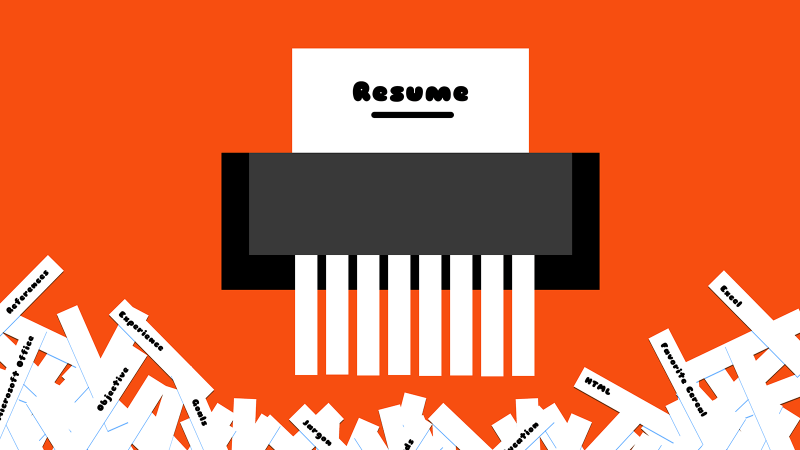Press Clips
Common wisdom tells us to limit all the important information on our resume to a single page, with just the highlights. Here’s how to do it right.
Common wisdom tells us to limit all the important information on our resume to a single page while highlighting job experience and random factoids. But what about that series of McJobs, or the unfortunate gig that ended really (really) badly? Is it considered smart to leave those out of an updated CV, or will it seem like you’re lying?
Heather Monahan, a women’s empowerment and business expert, mentor, and speaker told Ladders, “A resume should be professional and include specifics that highlight your successes throughout your career, and should always be an honest representation of your work history.”
1. Who are you?
While some jobs offer title changes without raises, others tend to hold onto titles that seem a bit dusty in light of the new generation of jobs. If you’re changing jobs after a long time at the same company, do some research to see if your title is still interesting or even relevant. Even if you were referred to by one title at your office, it’s possible that no one uses that particular moniker elsewhere anymore.
2. To hobby or not hobby?
As to the eternal question of whether to include hobbies, Monahan believes that it depends. “Unless your hobbies are somehow highlighting your talents and value that you are bringing to your future employer, it seems unnecessary,” she said.
So, definitely no need to mention your Rugby prowess or mad origami skills. And in case you’re wondering, some hobbies are more interesting to recruiters than others. For instance, Monahan said, “If you have a hobby that contributes to your success in the workplace than it would be appealing. For example, if CrossFit is your hobby and you are a running coach, it would lend value to your career.”
3. Mind the gap
Even when tidying up your work history, the jury is out on leaving huge blank spaces in your resume. While Monahan said, “You want an honest representation of your work history. It is important to include where you have worked and not leave gaps on your resume,” it’s also important to realize that not every job best represents the professional you are now.
For instance, if you had a meltdown and your last job and no one there has a good thing to say about you or your performance, it might be best to leave it off your resume or instead highlight the way that position helped your skills — without mentioning names or job specifics.
4. Ghosts of jobs past
So, you decide to leave out a past position that seems to have nothing to do with the one you’re applying for when suddenly, the interviewer mentions something you have experience doing. Now what? Is it okay to bring up a past job that you haven’t mentioned in your pared-down resume?
What if the interviewer asks about it? Monahan says, “If you haven’t included a job on your resume, why would you bring it up? This would be a red flag in an interview.”
A bigger red flag though would probably be trying to play down a situation in which the interviewer knows about your past job or specifically asks why you haven’t mentioned it. In that case, don’t lie or try to play it cool. Explain that you were paring down your resume and didn’t think that experience best highlighted your current skill set.
If painted into a corner, try being open and the slightest bit vulnerable. Let the interviewer know that you had a rough time at that gig, and preferred to leave it in the past since you’ve moved on and hope your current skills, recommendations and experience speak for themselves. And then smile and wait for the next question.
5. References unavailable
It’s entirely possible that every single time you’ve searched for a job in the past you’ve relied on the same few tried and true colleagues, or past supervisors for letters, or recommendation, or references. If you’re hoping to enter a different career arena or simply evolve professionally, you might want to update which parts of your career you highlight and which you minimize. Along with that goes past references. Did your last boss rave about you or simply offer a nod and grunt when asked about your past performance? Take stock of not only your past performance but also your current connections when choosing which past supervisors to share as potential references.
6. Don’t save the best for last
All of us have at least one great story that garners laughs or oohs and ahs. And while it’s a good idea to share these at parties, it might not be the best option when job hunting. If you’re wondering if it’s wise to save an interesting bit of career history for the follow-up email after your interview, it isn’t. Monahan says, “You get one shot to make a first impression and you want to lead with your best foot forward. I would not hold back on any highlights when trying to secure an initial interview.”
What you can do though, is offer a teaser that will hopefully pique the interest of potential interviewers. It’s fine to offer a hint about those fun days, back when you were a deckhand for Richard Branson, but save the best parts of the story for the interview if possible (and if asked about it!).


